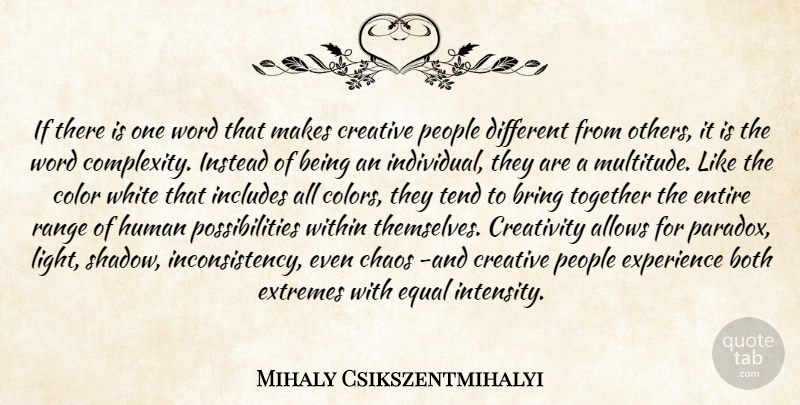

When that happens, they forfeit their chance of contentment.” (10) “The problem arises when people are so fixated on what they want to achieve that they cease to derive pleasure from the present. “With affluence and power come escalating expectations, and as our level of wealth and comforts keep increasing, the sense of well-being we hoped to achieve keeps receding into the distance.” (10) And whenever some of our needs are temporarily met, we immediately start wishing for more.” (7) Frustration is deeply woven into the fabric of life. “I shall argue that the primary reason it is so difficult to achieve happiness centers on the fact that, contrary to the myths mankind has developed to reassure itself, the universe was not created to answer our needs. These periods of struggling to overcome challenges are what people find to be the most enjoyable times of their lives.” (6) The pursuit of a goal brings order in awareness because a person must concentrate attention on the task at hand and momentarily forget everything else. This happens when psychic energy – or attention – is invested in realist goals, and when skills match the opportunities for action. “The optimal state of inner experience is one in which there is order in consciousness. If we are able to control this information, we can decide what our lives will be like.” (6) “Everything we experience – joy or pain, interest or boredom – is represented in the mind as information. “I developed a theory of optimal experience based on the concept of flow – the state in which people are so involved in an activity that nothing else seems to matter the experience itself is so enjoyable that people will do it even at great cost, for the sheer sake of doing it.” (4) But in the long run optimal experiences add up to a sense of mastery – or perhaps better, a sense of participation in determining the content of life – that comes as close to what is usually meant by happiness as anything else we can conceivably imagine.” (4) “Getting control of life is never easy, and sometimes it can be definitely painful. “The best moments usually occur when a person’s body or mind is stretched to its limits in a voluntary effort to accomplish something difficult and worthwhile.” (3) “Ask yourself whether you are happy,” said J.S. People who learn to control inner experience will be able to determine the quality of their lives, which is as close as any of us can come to being happy.” (2) Happiness, in fact, is a condition that must be prepared for, cultivated, and defended privately by each person. It does not depend on outside events, but, rather, on how we interpret them. It is not something that money can buy or power command. It is not the result of good fortune or random chance. “Happiness is not something that happens. As always, if you like the quotes, please buy the book here. Here’s the parts of Flow: The Psychology of Optimal Experience by Mihaly Csikszentmihalyi that I found most interesting.


 0 kommentar(er)
0 kommentar(er)
